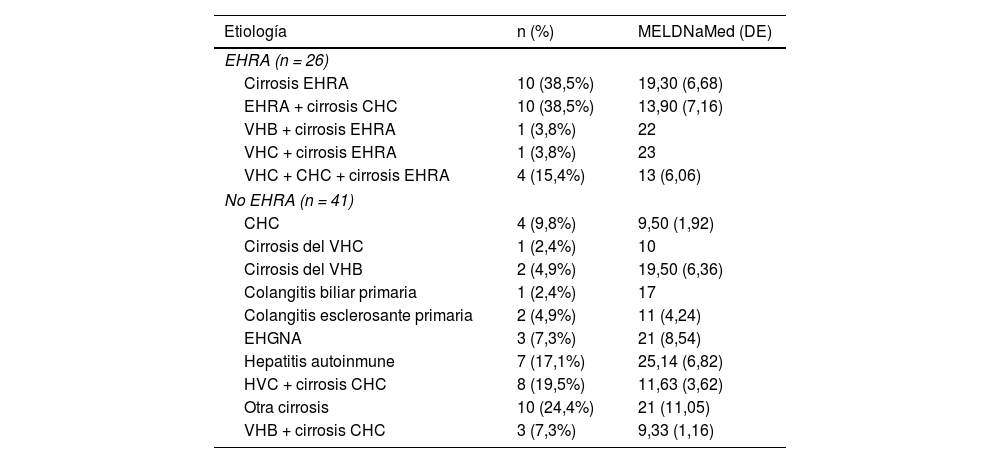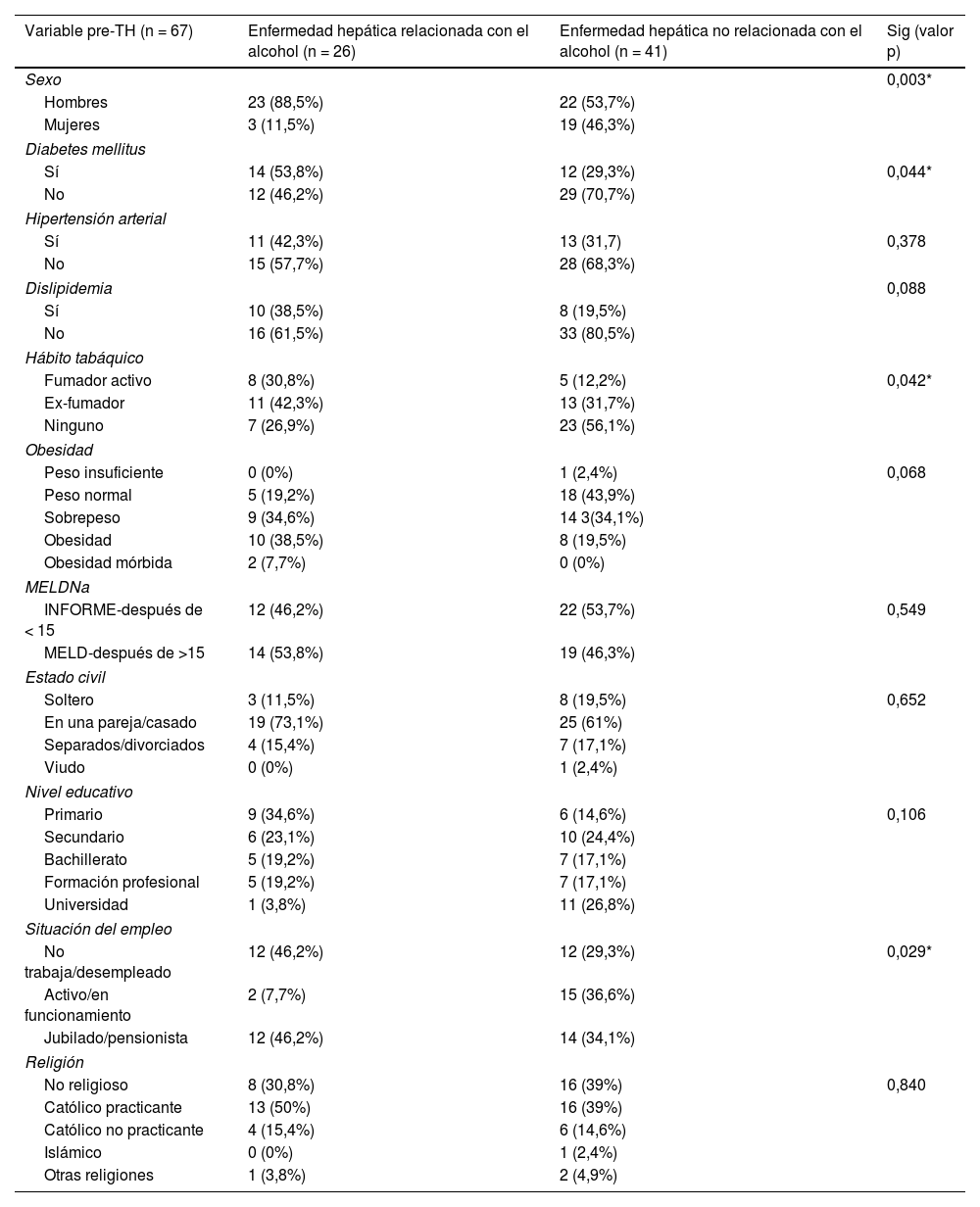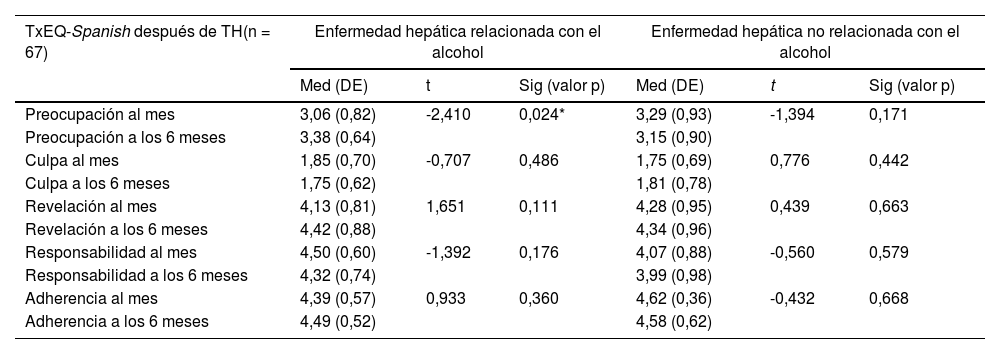Estudiar el estado de salud de un grupo de pacientes con trasplante hepático (TH) por enfermedad relacionada con el consumo de alcohol vs. otras etiologías, antes y después del trasplante.
MétodoEstudio longitudinal de cohortes en pacientes trasplantados hepáticos desde noviembre de 2019 hasta julio de 2022. Se incluyeron pacientes atendidos para un primer TH tanto electivo como urgente en la Unidad de Trasplantes de un hospital. Se excluyeron aquellos pacientes que ya portaban un órgano trasplantado y aquellos que necesitaron un re-TH en el primer mes tras el primer trasplante. Se recogieron variables sociodemográficas y clínicas, Model for End-Stage Liver Disease (MELDNa), índice de fragilidad hepática (LFI), efectos emocionales-conductuales del trasplante, nivel de ansiedad y depresión. En el análisis estadístico se utilizaron las pruebas de X2 de Pearson, t de Student, U de Mann-Whitney y el signo de Wilcoxon.
ResultadosLa muestra fue n = 67 pacientes trasplantados hepáticos, con una edad promedio de 56,37 años, siendo 67,2% hombres y 39% por enfermedad hepática relacionada con el alcohol (EHRA). De todos los pacientes incluidos, 9% fueron trasplantes urgentes. El consumo de alcohol se asoció con una mayor edad, una alta tasa de fragilidad hepática y una situación laboral no activa. La etiología alcohólica se correlacionó con una mayor preocupación durante los primeros seis meses después del trasplante de hígado.
ConclusiónExisten diferencias en el estado de salud de los pacientes trasplantados hepáticos por EHRA vs. otra etiología. Las enfermeras deben considerar la etiología de la enfermedad hepática para orientar los cuidados y las intervenciones durante todo el proceso de trasplante.
To study the health status of a group of patients with liver transplantation by alcohol-related disease vs another etiology before and after the transplantation.
MethodLongitudinal cohort study of liver transplant patients from November 2019 to July 2022. Adult patients attended in the unit of transplantation of a hospital for a first liver transplant, both elective and urgent, were included. Patients who already had a transplanted organ and those who required liver re-transplantation in the first month after the first transplant were excluded. Sociodemographic and clinical variables, MELDNa, liver frailty index, emotional-behavioral effects of transplantation, level of anxiety and depression were collected. Pearson's chi-square, Student's t, Mann-Whitney U, and Wilcoxon sign tests were used for statistical analysis.
ResultsThe sample was n = 67 liver transplant patients with a mean age of 56.37 years, 67.2% being men and 39% due to alcohol-related liver disease. 9% of all included patients were urgent transplants. Alcohol consumption was associated with older age, a high rate of liver frailty, and a non-active work situation. Alcoholic etiology correlated with increased concern during the first six months after liver transplantation.
ConclusionThere are differences in the health status between liver transplant patients for alcohol-related liver disease vs other etiology. Nurses must consider the etiology of liver disease to guide care and interventions throughout the transplant process.











